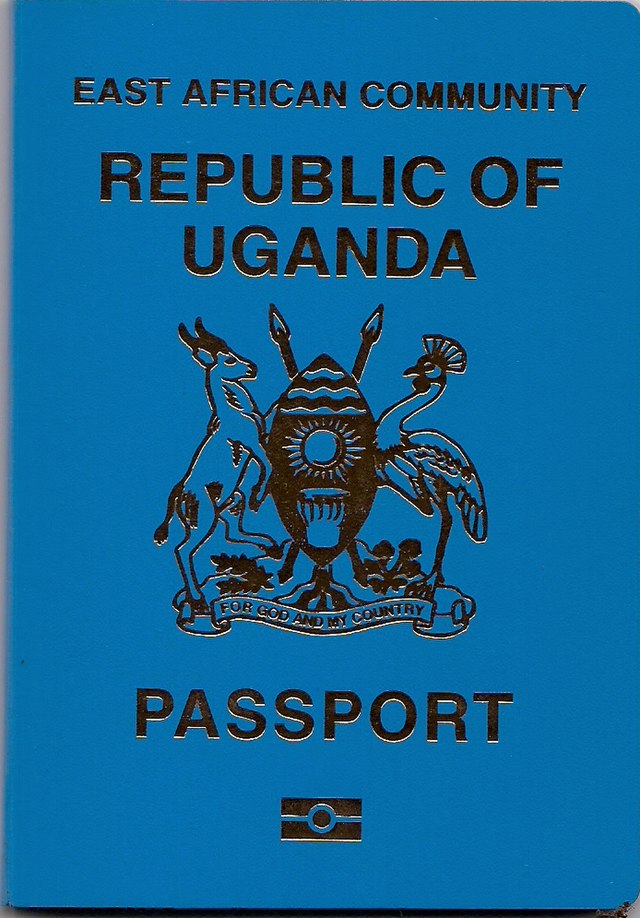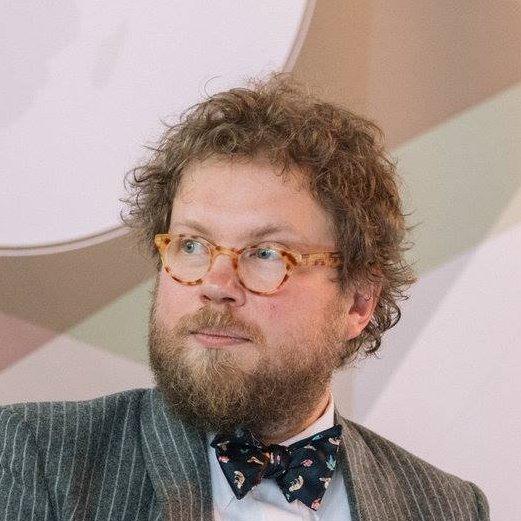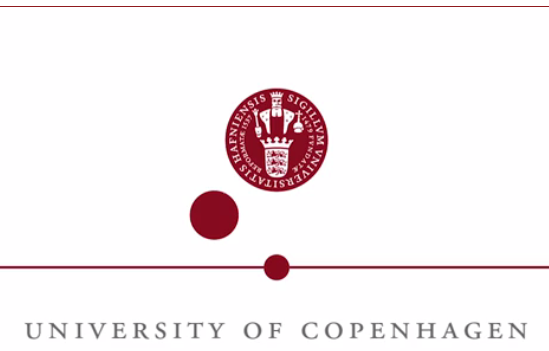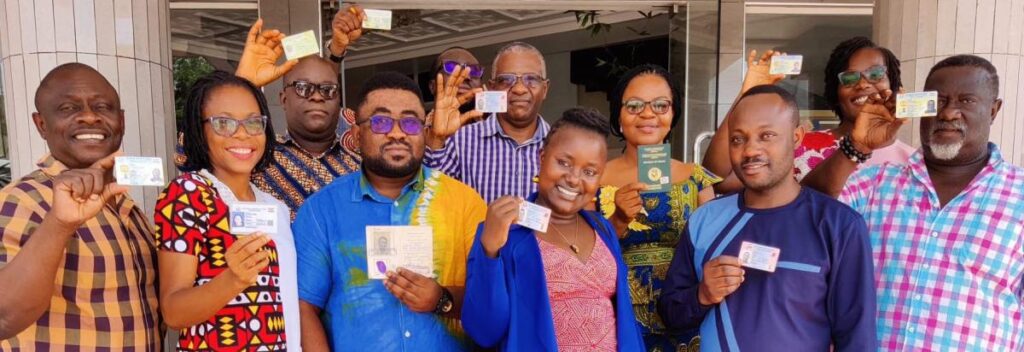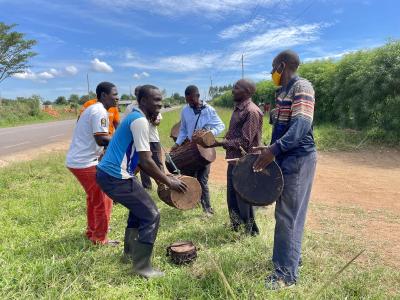A young Danish researcher from African Studies is observing how people in Uganda are navigating a new digitalized certification system which doesn’t recognize everybody as citizens – even when they have lived in the country for generations
In Uganda’s capital of Kampala a single ID card printer is currently struggling to fill the demand for equipping the entire population of 45 million people with new ID-cards. Out of originally six printers for that purpose, only one is currently functioning.
Since 2014 the government has tried to equip every single citizen with a new National ID Card, which is part of the aim of living up to the United Nations SDG-goal of ”legal identity for all” before 2030.
According to Toke Møldrup Wolff, an Assistant Professor at the Centre of African Studies at University of Copenhagen, the situation of underequipped administrations is a critical challenge that slows down the modernization of the national economy and the public sector in the country.
He is a key person in an ambitious research project called ”Certizens” (Certifications of Citizenship in Africa) which is designed to study registration of citizens and digitalization of the public sector in Uganda and Ghana.
”It makes a lot of sense to begin registering people – if it just worked well. As long as it doesn’t it ends up defeating its own purpose”, he says.
”SDG Goal number 16,9 (Legal Identity for All, ed.) is meant to empower citizens by offering them proof of their citizenship. Ideally, this can be used for citizens to claim their rights and gain access to a variety of state services. Again, increased monitorization and improved statistics can also help achieve the other SDG-goals. But if you don’t have enough bureaucrats and proper equipment to register people and distribute the ID cards it can end up making life more difficult for the many Ugandans who have to navigate their daily life without a National ID”, Toke Møldrup Wolff explains.
That is even more true when you observe how some ethnic groups are systematically excluded from obtaining their ID-card. When Uganda’s constitution was amended in 1995, some ethnic groups were for some reason not mentioned as Ugandan citizens in line with most other ethnic categories in the country. In practice, this wasn’t any problem until the start of the introduction of the new ID-cards in 2014. Then, the problems began.
”As soon as you are not part of the new registry, you are basically on your own and cannot access any public services including healthcare and schooling. In that case, the new system is not promoting development – but quite the opposite”.
Toke Møldrup Wolff grew up with travelling together with his parents. Later in his life, his father started travelling in Africa for his work and he came home with pictures and stories that fascinated his son. When Toke Møldrup Wolff was very young, he became interested in global structures of inequality, and after traveling as a backpacker in East Africa, it was an obvious choice to study African Studies.
”I am very interested in conflict areas”, he explains. ”I wrote a PhD in Somaliland about conflicts between town and countryside – between traditional ways of solving problems by rural clan leaders on one side and more urban and state oriented ways of doing it on the other side”.
While he was doing his fieldwork in Somaliland in 2017, a presidential election was held, and he served as election observer. He could observe first hand how the identity of voters were checked by an iris scan, a new technology which had never been used for voter registration in Africa before. He was stunned by the ”contrast between new technologies and traditional mass informalities”, and he realized the great monitoring and power-exercising potential of the new technologies in play.
Efficiency and monitoring
After finishing his PhD he joined the ”Certizens” project which was designed in collaboration with Ugandan and Ghanaian universities and based on an original idea by Amanda Hammar, professor and former Director of CAS. Her interest was to explore the role of ID-cards and citizens’ registration in the political development of African countries.
The registration of citizens in African countries was boosted in the aftermath of the 9/11 terrorist attacks.
But the technology behind the biometric cards and certificates developed fast, and gradually it became more and more an efficient tool for the governments in other fields. If you register yourself, you can have a bank account, get a driver’s license and so on. If you don’t, you cannot have these things. Many governments realized that they could live up to the SDG goal about ”Legal Identity to All”, and at the same time gain much better control over their citizens if that was what they wished to have.
Within the ”Certizens”-project, Toke Møldrup Wolff has become the Project researcher of the subproject concerning ”Certifications of Citizenship in Uganda: The Intermediate Arena”, conducted among ethnic minorities in Uganda.
”I am very interested in exclusion, and ethnicity proved to be an interesting site for exploring ways in which people are excluded from obtaining the National ID”, he explains.
In Uganda, there are no less than 21 ethnic groups, who have lived there for generations and consider it their home country but who are not mentioned in the 1995 constitution and therefore don’t officially count as Ugandans. The Maragoli people is one of these groups.
”They did actually migrate to Uganda from Kenya several generations ago in the early twentieth century, but it is also the case with most other ethnic groups, that they have migrated in the past – and national boundaries in Africa are in any case drawn by European colonialists without much concern for dividing lines between ethnic groups”.
Decade after decade, the Maragoli people have paid their taxes, owned property and even participated in elections. But even if they now show their tax receipts or property certificates, it doesn’t make them Ugandans in the modern public registration sense. There is no ID-card for them.
”The computer says no. You are not in the system”, is the message they very often get when trying to register themselves or attempt to access public services according to Toke Møldrup Wolff.
”Only in 2014, when the ID-cards are introduced, they realize that they are not considered real Ugandans – and at the same time other groups realize that the Maragoli are not Ugandans. Some of them start to demand the fertile lands of Maragoli families. They haven’t had serious ethnic strife for a long time – but now it’s being instigated by the government’s registration drive”.
Then, the focus of Toke Møldrup Wolff’s fieldwork has been to talk to administrators as well as ordinary citizens to learn about how people from the Maragoli group are indeed able to navigate this system even though they have not been allowed to register themselves legally.
Some of them are registering themselves as belonging to another ethnic group than they actually belong to in order to be allowed to send their children to public school. This will often force them to borrow or buy an entirely new name from members of another ethnic group. Normally your name would easily show which ethnic group you come from.
This kind of maneuvering creates a situation of permanent mistrust between administrators and people and state bureaucrats have become increasingly cautious before registering people as citizens.
But even though some are able to maneuver the system, future problems can emerge: In all their official papers until then concerning property and other things, it is their old name that appear. Now, they can suddenly not any longer prove they own the land they are cultivating.
South-North combination is a good model
”At the start of the Certizens-project, we didn’t know the professors in Ghana and Uganda who became the main South partners in the project”, Toke Møldrup Wolff explains. ”We reached out for our strong network and asked around”. Toke Møldrup Wolff and Amanda Hammar then travelled together to Ghana and Uganda to start the collaboration with the university in each country.
Ultimately, a professor from Ghana and another one from Uganda got very involved already from the designing stage. Everyone in the project is now involved in data collection and Toke Møldrup Wolff gathers data during numerous short stays in Uganda. There are also two PhD’s in Uganda, two in Ghana, plus one in Copenhagen.
All data are continuously shared, and once a month there is an online meeting in order to exchange findings, thoughts and doubts.
”The South-North combination is a good model and will be that for many years to come”, Toke Møldrup Wolff predicts.
”If the two professors in Ghana and Uganda had got the idea themselves, of course they would cognitively and intellectually have been able to conduct the project without us – but their access to funding is much more limited. It’s a fact that there is a global distortion in the distribution of research funding. The two South professors are aware of the distortion and operate within it”.
”I honestly feel that we are learning a lot from each other through this kind of project. Most participants are PhD’s, they are in a learning process, and they are guided through that by the local professors, but also by us”.
”But we are learning a lot from them. It would be impossible for us to come from the outside and conduct this kind of research without local anchoring. That would be a hopeless and unethical endeavour. We always have a local research assistant with us during fieldwork who is familiar the local conditions”.
Toke Møldrup Wolff is aware that he as a white man obviously coming from abroad will not always get the same answer to the same question as the local researcher would get – but he does not necessarily see that as a disadvantage.
”There is a major difference in the way people are expressing their frustrations with the ID-chaos in front of us. The Ugandan researchers have been through the same ID-procedures, and they are expected to know the general picture. People do not expect that I know anything, so they will present it to me in a less esoteric way, and I am allowed to dig deeper and raise more naive questions. That gives our conversation another kind of dynamic. No doubt about that”.
”I am not saying that it’s better. A combination of local anchoring and outside wonder has shown itself to be a good recipe. But the days of colonial anthropology is definitely over. We cannot just come, sit down with a notebook and observe people – that would not be proper research”.
